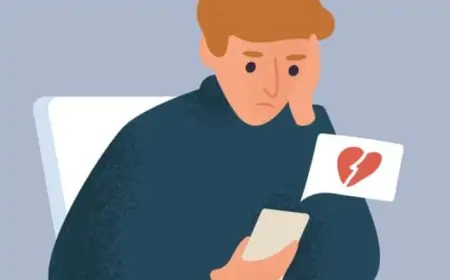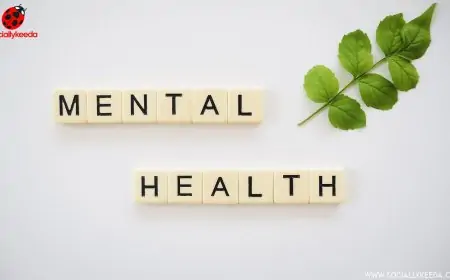Fasting has been known to reduce blood sugar and even help people with diabetes in other ways. We want to help you with this article so that you may learn more about healthy fasting techniques and how it helps manage your diabetes. Fasting decreases your body's glucose levels, making it a vital wellness technique for those who suffer from high glucose levels, cholesterol, and triglycerides. Many people who have diabetes, high cholesterol, and high blood pressure can derive great health benefits from fasting to improve their blood sugar and lipid profiles.
What is Fasting?
Fasting is a time-honored practice of many religions, and its health benefits are well-documented. Fasting is different from starvation, though there have been cases of humans and animals starving to death. Fasting for a day or two can significantly positively affect your body.
When you fast, your body shifts from using glucose to using fat for energy, this process, known as ketosis, can be beneficial for weight loss and overall health. However, if you have diabetes, fasting may make it harder to control your blood sugar levels.
There are two types of fasting:
- Intermittent fasting
Intermittent fasting is an eating pattern that cycles between eating and fasting over a defined period. It involves eating normally for 24 to 36 hours, followed by a brief period where no food is consumed (usually 16 to 24 hours). - 24-hour fasting
24-hour fasting is like intermittent fasting but instead involves restricting calories for an entire day, usually once or twice per week.
Is Intermittent Fasting Safe or Healthy for Diabetics?
Intermittent fasting is not recommended for people with diabetes because it may cause hypoglycemia (low blood sugar). If you have diabetes, you already have an increased risk of developing hypoglycemia because your body cannot produce as much glucose as it needs to function correctly. Intermittent fasting may increase this risk even further because it increases your body's time without food.
If you decide to try intermittent fasting, monitor your blood sugar carefully during fasts.
How Does Fasting Affect Diabetes?
When you have Type 1 diabetes(T1B), fasting may lead to hypoglycemia (low blood sugar). During fasting conditions, when there is not much food to digest, your liver converts glycogen stored in liver cells into glucose molecules that can be released into the bloodstream if hypoglycemia results when glycogen stores run low.
What Causes Hypoglycemia During Fasting?
Hypoglycemia is caused by a lack of insulin in the bloodstream. Insulin is a hormone that helps regulate blood sugar levels by allowing glucose to enter cells for energy or storage. The body activates its emergency backup plan when someone with T1D does not have enough insulin in their bloodstream during fasting conditions: gluconeogenesis; this process creates glucose that serves as an emergency energy source until the food is consumed again. But if there is not enough glucose available to the body during this process, hypoglycemia may occur.
Hypoglycemic symptoms are related to low blood sugar levels (or “hypoglycemia”) and can include confusion, headache, weakness, shakiness (sometimes tremors), sweating, and hunger, as well as nausea and vomiting.
The Benefits of Fasting for Diabetes Patients
People with type 2 diabetes who fasted for two days per week lost more weight than those who did not fast, according to a study published in the Endocrine Society's Journal of Clinical Endocrinology & Metabolism. The researchers also found that fasting lowered blood glucose levels and improved insulin sensitivity in people with type 2 diabetes.
You can use Klinio as the best diabetes app to track your weight and to track your glucose level. Klinio also helps you to track steps, weights, and medications – it uses all this data for most of your treatment plan.
Fasting has the following benefits:
- According to a study published in the journal Cell Metabolism, it reduces the risk of developing diabetes by 58 percent.
- May improve blood sugar levels in people with prediabetes or type 2 diabetes, according to research published in Diabetes Care.
- Helps decrease blood pressure and triglyceride levels (a type of fat) in people with prediabetes or type 2 diabetes.
Problems of Fasting for Diabetes
Fasting has long been used to improve health and well-being. Many studies have shown that fasting can help control blood glucose levels in people with diabetes and reduce their risk of complications from the disease.
But not everyone should try fasting for diabetes. Fasting can be harmful to some people with diabetes, especially those taking insulin or other medications, such as sulfonylureas (glipizide, glyburide), which lower blood sugar too much when taken too close to bedtime.
Here are some problems associated with fasting for people with diabetes:
- Blood glucose levels can drop too low during the day while you are not eating — and then spike when you eat again at night. This is especially true if you take insulin or oral medications that lower blood sugar by increasing its production (such as sulfonylureas).
- Fasting may increase your risk of hypoglycemia (low blood sugar), which can cause headaches, confusion, weakness, or even unconsciousness if left untreated.
- Fasting may make it harder for you to control your weight because it is less likely that you will feel satisfied by the lesser amounts of food eaten during a fast than if you were regularly eating throughout the day.
- If you have type 2 diabetes, fasting can cause a spike in blood sugar levels after eating again.
- Fasting can lead to dehydration if you are not drinking enough fluids fasting. Dehydration can cause serious health problems in people with diabetes because they are more sensitive to changes in their bodies' water content than healthy people are. Dehydration also causes blood pressure to fall, which could lead to dizziness.
Fasting or intermittent fasting is a helpful tool for those who have diabetes, primarily type 2 diabetes. You can use the app for fasting and not fast while eating meals for fasting. The easy Diet Control app is available on iTunes Store and Google Play.









